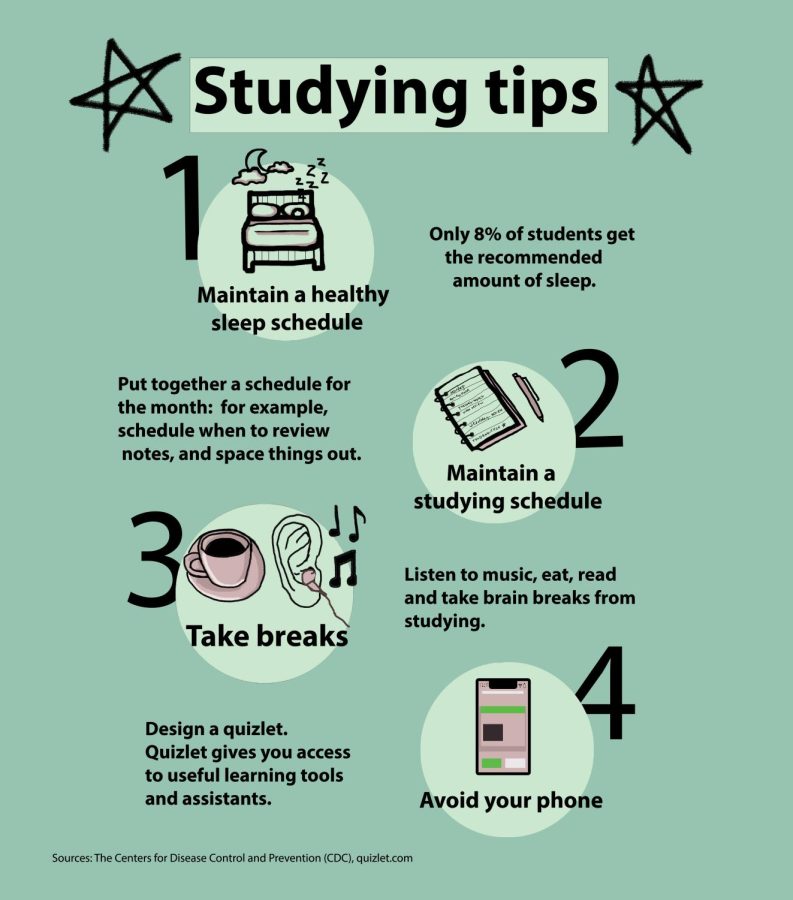Darsazma News Hub
Your go-to source for the latest news and insightful information.
Conquer Exams with These Study Hacks
Unlock your potential and ace your exams with these proven study hacks! Discover strategies that work and boost your grades today.
Top 10 Study Hacks to Ace Your Exams
Preparing for exams can be overwhelming, but with the right strategies, you can make the most of your study time and significantly enhance your performance. Here are the Top 10 Study Hacks to help you ace your exams:
- Create a study schedule: Break down your study material into manageable sections and allocate specific times for each subject.
- Use active recall: Test yourself frequently on the material you study rather than passively reviewing it.
- Practice past papers: Familiarize yourself with the exam format by practicing with previous years' question papers.
- Form study groups: Collaborate with classmates to discuss concepts and quiz one another.
- Take regular breaks: Use techniques like the Pomodoro Technique to enhance focus and avoid burnout.
- Utilize mnemonic devices: Create acronyms or phrases that help you remember key information.
- Teach someone else: Explaining concepts to others can reinforce your understanding.
- Stay organized: Keep your notes, resources, and study materials neatly arranged for easy access.
- Prioritize your health: Ensure you're getting enough sleep, eating well, and staying hydrated to keep your mind sharp.
- Stay positive: A positive mindset can greatly impact your performance, so believe in your abilities!

How to Create an Effective Study Schedule
Creating an effective study schedule is essential for maximizing your learning potential and ensuring you cover all necessary material before exams. Start by assessing your goals and determining how much time you have before the exams or deadlines. Break down your study material into manageable chunks and prioritize subjects based on difficulty and importance. Create a grid or use a planner to allocate specific time slots for each subject. For example, you might dedicate two hours each weekday to mathematics and one hour on weekends for history.
In addition to time allotment, it’s important to incorporate short breaks to avoid burnout. The Pomodoro Technique—which involves studying for 25 minutes followed by a 5-minute break—can enhance your focus and retention. As you create your schedule, make sure to set realistic goals and allow flexibility for unexpected events. Regularly review and adjust your study plan to stay on track; remember, consistency is key to maintaining an effective study routine.
What Are the Best Techniques for Retaining Information?
Retaining information effectively is crucial for students and professionals alike. Some of the best techniques include active learning, which involves engaging with the material through discussions or teaching it to others. Another effective method is the spaced repetition technique, where information is reviewed at increasing intervals. This approach leverages the spacing effect, enhancing long-term retention by combating the forgetting curve. Utilizing mnemonics is also beneficial; creating acronyms or visual imagery can serve as mental shortcuts to facilitate memory recall.
Furthermore, mind mapping can help in organizing information visually, allowing for better comprehension and retention. Incorporating sensory elements, such as color coding or auditory cues, can also boost memory. It's essential to create a conducive study environment that minimizes distractions. Additionally, getting adequate sleep and maintaining a healthy lifestyle plays a significant role in cognitive function, further supporting one's ability to retain information over time.